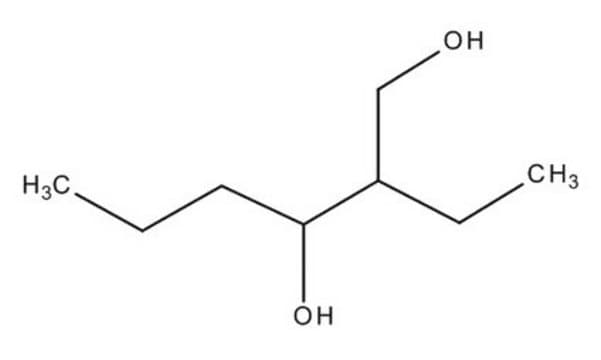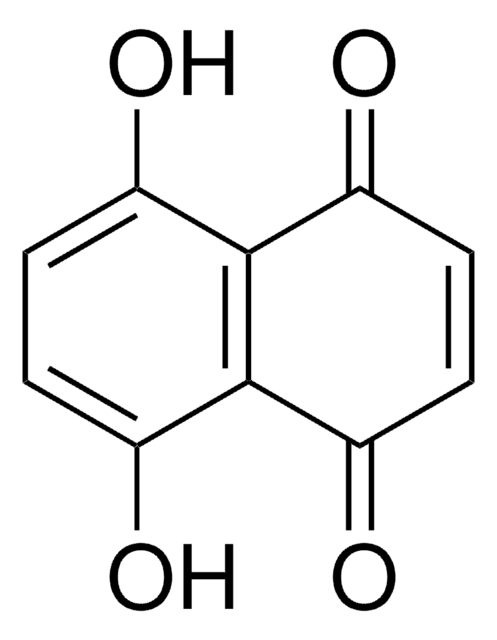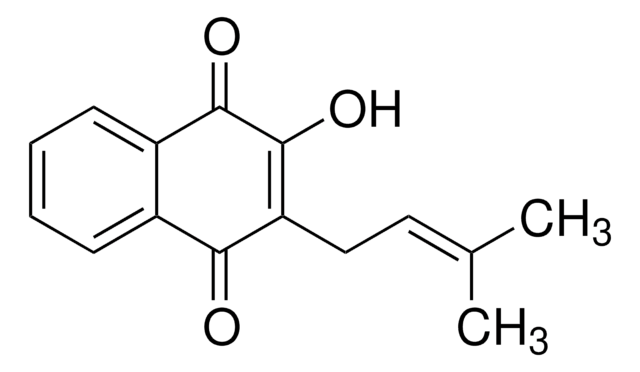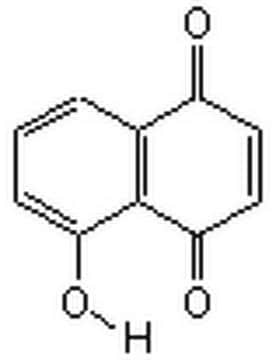H46805
2-Hydroxy-1,4-naphthoquinone
≥96.5% purity, powder
Synonym(s):
Lawsone, Natural Orange 6
About This Item
Recommended Products
product name
2-Hydroxy-1,4-naphthoquinone, 97%
Quality Level
Assay
97%
form
powder
color
faint yellow to dark yellow, and Faint Orange to Dark Orange
mp
192-195 °C (dec.) (lit.)
λmax
452 nm
application(s)
diagnostic assay manufacturing
hematology
histology
storage temp.
room temp
SMILES string
OC1=CC(=O)c2ccccc2C1=O
InChI
1S/C10H6O3/c11-8-5-9(12)10(13)7-4-2-1-3-6(7)8/h1-5,12H
InChI key
CSFWPUWCSPOLJW-UHFFFAOYSA-N
Looking for similar products? Visit Product Comparison Guide
General description
Application
Signal Word
Warning
Hazard Statements
Precautionary Statements
Hazard Classifications
Eye Irrit. 2 - Skin Irrit. 2 - STOT SE 3
Target Organs
Respiratory system
Storage Class Code
11 - Combustible Solids
WGK
WGK 3
Flash Point(F)
Not applicable
Flash Point(C)
Not applicable
Personal Protective Equipment
Choose from one of the most recent versions:
Already Own This Product?
Find documentation for the products that you have recently purchased in the Document Library.
Customers Also Viewed
Our team of scientists has experience in all areas of research including Life Science, Material Science, Chemical Synthesis, Chromatography, Analytical and many others.
Contact Technical Service













